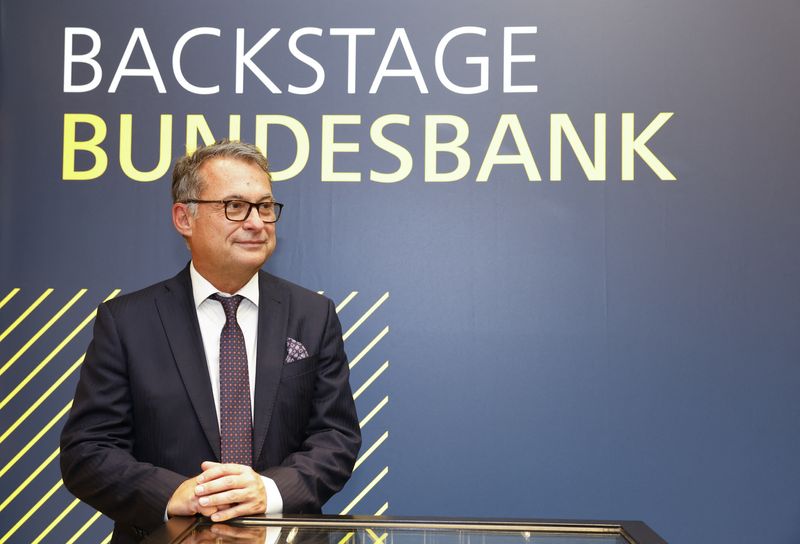FRANKFURT (Reuters) – The European Central Bank may need significant rate hikes beyond March and should accelerate the rundown of its oversized bond portfolio to fight stubbornly high inflation, Bundesbank President Joachim Nagel said on Wednesday.
The ECB has raised rates by 300 basis points since July and promised another oversized move in March, but some policymakers have called for more measured action after March as inflation is now off the highs it hit in October.
Nagel pushed back on those calls, saying that recent energy price falls may help inflation in the near term, but they do not impact the medium term and price growth was at risk of getting stuck above the ECB’s 2% target.
“The interest rate step announced for March will not be the last,” Nagel said in a speech. “Further significant interest rate steps might even be necessary afterwards, too.”
Markets currently expect the 2.5% deposit rate to peak at around 4% near the turn of the year, suggesting another 100 basis points of hikes after March.
Once rates peak, they must stay high until the ECB is confident that inflation will return to 2%, Nagel said.
“This also has to be reflected in underlying inflation. Until that is the case, interest rate cuts are a non-starter,” Nagel said.
The ECB, which started reducing its 3.3 trillion euro Asset Purchase Programme on Wednesday, should accelerate the reduction of its balance sheet from July, he added.
The bank is now reducing the scheme by 15 billion euros a month by not reinvesting all the proceeds from maturing debt, but Nagel said that it will simply take too long to make a significant dent in the size of the scheme at this pace.
“I am therefore in favour of taking a steeper path of reduction starting in July in light of experience gained up to that point,” Nagel said.
Inflation in Germany could still average between 6% and 7% in 2023 and both headline and underlying inflation could stay “well above” the ECB’s 2% target in both 2024 and 2025, Nagel added.
While inflation is high, growth is showing few signs of making a turnaround.
Germany, the biggest economy in the 20-nation euro zone, could record a full-year contraction, though this could be smaller than the 0.5% drop seen in December.
“Although there could be a gradual pick-up in the second quarter, there is still no sign of any major improvement for now,” Nagel said. “Our experts are not expecting there to be a visible economic recovery until the second half of the year.”
(Reporting by Balazs Koranyi; Editing by Andrew Heavens)
